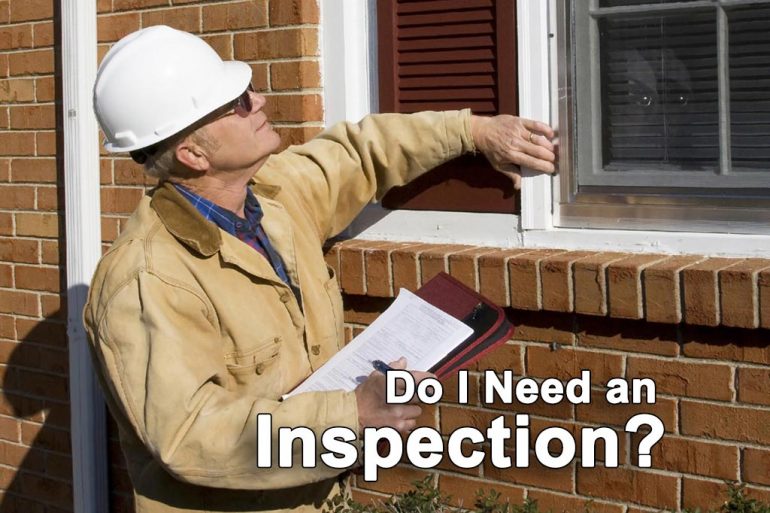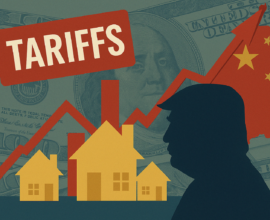Do I Need a Home Inspection for an Investment Property?
As a real estate investor, you’re always looking for ways to cut costs and reduce overhead in an effort to maximize returns. But there are a few expenses that you should never forego, such as a Home Inspection for an investment property. This is one expenditure that can help you avoid a very costly misstep: acquiring a money pit property with damage that you failed to fully appreciate. Just one bad investment can eat up a large portion (or even all) of your working capital, leaving you in a bad position as you seek to proceed with future investment deals.
Of course, this is the opposite of whats supposed to occur when a real estate investor acquires a new property. And unfortunately, the investors who stand to suffer the greatest harmsuch as the loss of a significant percentage of their working capitalare also the investors who are most likely to forego an inspection. Inexperienced investors frequently seek to cut costs and overhead wherever possible. They may also fail to appreciate the importance of a home inspection due to a lack of experience. This type of investor may also lack the knowledge required to identify signs of a serious, yet not- so-apparent problem in a structurethe type of problem that can lead to a nightmare investment scenario.
Why Do I Need a Home Inspection?
Simply stated, a home inspection is an essential element of due diligence for every real estate investor. There are many issues that can be difficult to spot, so you need an experienced professional who knows precisely what to look for. Whats more, its easy to underestimate the severity of a problem, leading to a scenario where youre straddled with higher-than-expected costs that slice into your profits.
So before you opt to skip a home inspection, consider this: Are you equipped to spot signs of a termite infestation or a sinking foundation? Do you have the knowledge required to identify a widespread mold problem inside the homes walls or ductwork? Are you in a position to accurately evaluate the integrity of a homes roof? These are just a few of the many problems that can arise in a property and the extent, severity and
cost to repair these issues can be very challenging to determineparticularly as a layman. This is why its so important to hire a home inspector who can examine the property and identify any issues that may require repair and/or impact property value.
A home inspection also provides you with a chance to formally document the issues that are present in a property. The inspection allows you to create a record of precisely what issues were present. Florida law allows your buyer to seek damages if you, the seller, fail to disclose a known problem that adversely impacts the propertys desirability or value. The home inspection records can serve as evidence that a particular problem was not present (or detectable) at a specific point in time. And if the home inspector failed to detect a problem, the inspector may hold the liability instead of you, the investor.
Do You Need a Home Inspection for a Newer House?
Its easy to get complacent with a newer home, as you may assume that the property is simply too new to have any major problems. But this can prove to be a costly mistake because a serious problem can arise in a matter of weeks or months. For instance, if the moisture barrier was damaged during installation, a roof leak could form in fairly short order, resulting in costly water damage.
Even brand-new properties require an inspection to ensure that everything is in order. Contractors can and do make mistakes. Some may even cut corners in an attempt to maximize profits, while other issues can arise from a simple miscommunication or poor project management. Therefore, its critical that you get an inspection performed by a knowledgeable and objective third party, regardless of the homes age.
Can You Get a Home Inspection on Every Property?
Unfortunately, its not always possible to get a home inspection on every property. This is typically the case for foreclosure auctions and tax deed auctions, where you generally cant gain interior access prior to closing the deal. While this is obviously not ideal, its a reality that investors will need to work around.
If an inspection isnt possible, you might consider visiting the property in person with your trusted, go-to contractorsomeone with lots of experience in rehabbing and repairing investment properties. If its safe to approach the property, you can examine the home from the exterior and peek inside, getting a good feel for overall condition and any problems that may be present.
City and county auctions do represent a slightly higher risk since a pre-purchase
inspection isnt generally possible. But the lower cost of acquiring a foreclosure or tax deed auction property typically offsets this risk.
What Areas of the Home Will Be Inspected?
Home inspectors will examine all areas of the home, from the foundation, to the roof and everything in between. The inspector will be looking at structural integrity and the integrity of various systems within the home, including:
- The roof and attic;
- The hurricane strapping and any storm-friendly retrofitting;
- The foundation and flooring;
- The interior and exterior walls and masonry;
- The general condition of major systems such as the pool equipment, septic system, HVAC system and well equipment;
- The homes plumbing and electrical systems and verall structural integrity
Your home inspector will be on the lookout for additional issues such as water damage, mold, asbestos-laden building materials, lead paint, termites and other pest infestations.
Home inspections are particularly vital in the weeks and months following severe weather; namely, hurricanes. While most hurricane damage is quite apparent, a major storm may also leave more subtle damage that may not be immediately detected. For instance, a hurricanes powerful winds can damage roofing, but an actual roof leak may take a couple months to form and the resulting water damage could take even longer to detect. An experienced inspector can identify many problems in the early stages, before damage is apparent to a layman. This also gives you an opportunity to fix the problem sooner rather than later, resulting in some significant financial savings.
How Much Does a Home Inspection Cost in Florida?
As of May 2018, the typical Florida home inspection averaged around $320, with smaller structures such as condominiums coming in around $200 per inspection and larger homes of 2,000 square feet or more priced at $400 or more.
Its important to note that additional specialized inspections may be required, depending upon the findings. Other more specialized inspection types include:
- Termite inspections;
- Mold inspections;
- Radon inspections; and
- Inspections for a particular system (i.e. HVAC, pool, well or electrical.)
You may need to pursue one of these more specialized inspections if the initial inspection reveals signs of a possible problem.
What Happens if a Home Inspector Finds a Problem?
If your home inspector detects an issue, then youll need to determine the extent of the problem and cost to perform repairs or upgrades. In some cases, you may need to call in an expert to perform a more localized in-depth inspection, such as a professional who specializes in mold remediation. In other cases, you can simply call in a trusted contractor who can evaluate the problem and provide a time and cost estimate for performing the repairs.
Once you have an idea of how much and how long it will take to address the repairs, you can make an informed decision as to whether the property represents a wise investment. Underestimating the extent of repairs or the cost of a rehabbing project can prove catastrophic for investors, since you risk obliterating your profit margin. In short, a home inspection provides you with an opportunity to identify and document the issues that are present in a property. This way, you can proceed with confidence knowing that you wont encounter any nasty, unexpected problems that threaten to consume your profits and even your working capital.







